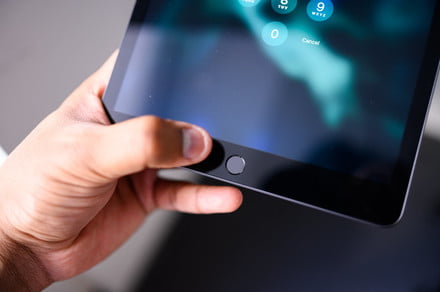Your TV Is Watching You: LG’s New Update Turns 200 Million TVs into Ad-Tracking Machines
Remember when TVs were just big boxes that played your favorite shows? You turned them on, flipped through channels, maybe adjusted the antenna if you were old-school. Fast forward to 2025, and things are looking… a lot smarter. Maybe too smart.
If you own an LG smart TV—whether it’s brand new or several years old—there’s something you need to know: it may soon start watching you.
Not in a creepy, Big Brother-is-watching sort of way. At least, not exactly. But LG just announced plans to roll out a software update that will enable advanced user tracking on over 200 million smart TVs, including older models. The goal? To deliver more personalized and “effective” advertising.
Yes, you read that right. Your LG TV is about to become an ad-targeting machine. Let’s break down what’s happening, how it works, why LG is doing this now, and what it means for your privacy.
So grab your popcorn—or maybe your tinfoil hat—because this one’s worth sticking around for.
First, let’s get the facts straight. LG says it’s upgrading its LG Channels platform to include a new level of “audience analysis.” That means your TV will be able to track what you watch, how long you watch it, and even how you interact with your remote, in order to build an advertising profile around you and your household.
This is part of a larger initiative by LG Ad Solutions, the company’s advertising and data division. The update will be pushed out to smart TVs globally—not just in new devices, but in models going back several years. That means if you bought an LG TV anytime since around 2018, there’s a good chance it’ll be part of the rollout.
And here’s the kicker: you won’t necessarily need to do anything for it to start. The update may be automatic, depending on your settings and region. While LG claims you can adjust privacy preferences, let’s be honest—how many people actually check those tiny settings buried in submenus?
So what exactly is your TV going to “see”? LG says it will use something called ACR (Automatic Content Recognition). This is a technology that scans the pixels on your screen to detect what you’re watching in real time—yes, even if it’s coming from an HDMI source like a gaming console, Blu-ray player, or streaming stick.
In other words, your TV knows if you’re watching Netflix, playing Call of Duty, or rewatching that 90s sitcom on DVD. It also tracks how long you stay on each app, what you search for, what ads you skip, and potentially even how often you mute the volume.
Combine that data with your location, internet provider, time of day, and some anonymized identifiers, and voilà—LG can now build an incredibly detailed ad profile of your household.
And advertisers? They love this stuff. Because now they can serve you not just any ad, but the perfect ad. Watching cooking shows in the evenings? Here’s a meal kit delivery promo. Bingeing fitness content on YouTube? Say hello to home gym equipment ads. Skipping all the car commercials? Great—now they’ll show you something else that “performs better.”
This kind of ad targeting has long been the norm online—just think of how personalized your social media feeds are. But bringing it to TVs, especially on such a massive scale, is a big step.
So why now? Why is LG suddenly so invested in making your TV an ad engine?
The short answer: money.
TV makers don’t make huge margins from selling the actual screens anymore. The race to the bottom in pricing over the last decade has made TVs more affordable than ever. But the real profit? It’s in data and ads.
By turning your TV into a billboard that’s custom-tailored to your viewing habits, LG opens the door to massive ad revenues. According to a recent report by eMarketer, connected TV ad spending in the U.S. alone is expected to exceed $30 billion by the end of 2025. That’s a huge pie, and LG clearly wants a bigger slice.
Of course, this brings up one major concern: privacy.
Sure, LG says all user data will be anonymized and aggregated. But let’s be real—how often have we heard that before?
The bigger issue is transparency and consent. Will users be clearly informed that their TV is collecting data? Will they be able to opt out easily? Will the default setting be privacy-friendly—or “on” by default unless you dig into your settings?
Historically, many smart TV brands have faced lawsuits and regulatory scrutiny for collecting user data without clear consent. In fact, Vizio had to pay $17 million in 2022 to settle a lawsuit over its own smart TV tracking practices.
The concern isn’t just that your data is collected. It’s also that it could be shared or sold to third parties, combined with other data sets, or used in ways that go far beyond what you originally agreed to when you set up your TV.
And let’s not forget security. Anything connected to the internet is a potential target. What happens if someone hacks your smart TV and gets access to your viewing history or account details? The more your TV knows, the more there is to protect.
Still, not everyone sees this as a bad thing. Some users are excited by the idea of more relevant ads or smarter TV interfaces that adapt to their habits. After all, if you have to see ads, wouldn’t you rather see ones that actually match your interests?
Plus, LG isn’t the only company doing this. Samsung, Roku, and Amazon Fire TV all offer similar tracking capabilities. The difference is that LG’s update affects a massive number of existing devices, not just new buyers.
So what can you do if you’re not thrilled about your TV watching you back?
Here are a few practical steps:
- Go into your TV’s settings and review the privacy policy. Look for anything related to data sharing, ad personalization, or ACR. Turn it off if you can.
- Check your LG account online. Sometimes these permissions are managed through a web dashboard rather than on the TV itself.
- Use external devices like Apple TV or Chromecast with privacy controls, and avoid connecting your smart TV to Wi-Fi unless needed.
- Block your TV’s internet access entirely. Extreme? Maybe. But if you’re only using it for HDMI inputs and don’t need smart features, it’s one surefire way to stop data tracking.
- Stay informed. Tech policies change quickly. Keep an eye on updates from LG and industry watchdogs.
At the end of the day, LG’s move is a reflection of a broader trend: everything connected is becoming a source of data. Whether it’s your phone, your smartwatch, your car, or now your TV—companies are building richer profiles of who we are, what we like, and how we behave.
Is that always a bad thing? Not necessarily. Sometimes it results in better experiences, personalized recommendations, or even cheaper hardware. But when that data is collected without your full understanding or meaningful control, it crosses a line.
So yes, your TV is watching. But now that you know, you get to decide what it sees.
Stay sharp. Stay curious. And maybe, just maybe, read the settings screen before you hit “Accept All.”












